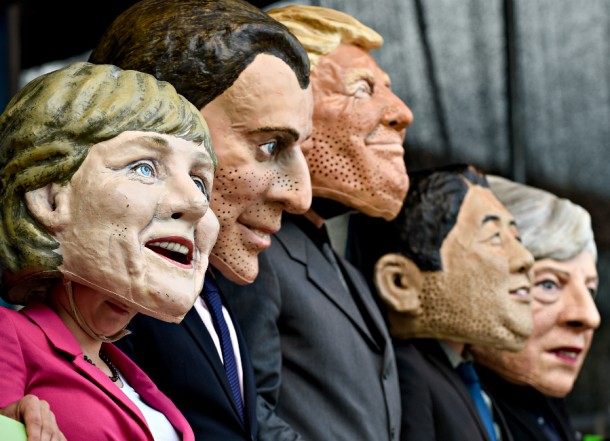GENEVA — Can man become immortal in a decade? Ray Kurzweil, the director of engineering at Google, is familiar with this subject. He has written books on health, artificial intelligence and futurology.
Kurzweil's theory on immortality is based on the exponential development of technologies, which have been growing more and more efficient, more and more rapidly. Kurzweil believes that biotechnology will transform health in the near future. He thinks that medicine will use "nanorobots" to complement the work of the human immune system by the year 2020. These tiny machines would be able to modify each human gene so it would not age or allow illness in the body. Kurzweil has theorized that, by 2030, medical technology would allow people to add an extra year of life each year to their life.
Are these predictions realistic? "Genetics and biotechnology are not the same thing," says Denis Duboule, a professor at the Ecole Polytechnique de Federale de Lausanne (EPFL) and at the University of Geneva. "In his development, Kurzweil mentions 23,000 small programs adapted to 23,000 genes. There is only one program, DNA. One cannot treat genes individually. DNA is a whole."
Francesco Stellacci, a specialist in biomaterial and nanoparticles and a professor at EPFL, says it's not so simple to change a gene. "I think he's extremely optimistic about the time it would take."
"It would not be impossible to operate on someone, to correct a malformation in order to live longer. This will take a hundred years," Stellacci says.
Duboule, the EPFL professor, says Kurzweil's theory on immortality raises serious questions. "At what age would you stop the aging? And then, what kind of population would we want to be left with? The (corporate) executives, the old people who shout in the train?"
Duboule says that in order to be immortal, it would be necessary to change the fundamental laws of human genetics. That's the problem with people who view the human body like a car, he says. "But when you've changed all the pieces, your car is no longer your car."
Our fear of dying
François Dermange, an ethics professor at the theology department at University of Geneva, says Kurzweil's vision of immortality reflects a culture of hyper-individualism, that is to say, "I am such a great person that I deserve to live infinitely," Dermange says.
"But the proposed treatment probably has a significant cost, allowing only an affluent person to be immortal. Why is this person more deserving of an eternal life?" Dermange asks.
The professor also puts forth another negative aspect of this desire to "live infinitely in a finite world" — the resources on Earth will not be available forever. "Fortunately, we die," he says. "The human species is too invasive, take for example climate change."
François-Xavier Putallaz, a philosophy professor at the theology department at University of Fribourg, says there are ways to live on infinitely besides transforming your genes. "There are other ways of never dying, notably through material achievements. For example, having children, creating works of art, having success. In this way, something from our life continues after our disappearance."
Why is the fear of death an obsession in man since the dawn of time? "Because we are not made to die but to live," says Putallaz. "We are so attached to our existence that we don't believe in our own death. We know that it exists because we see it and we know that man, therefore himself, is mortal."
Dermange, the ethics professor, says this impulse comes from our need for perfectionism. "It's difficult to accept aging, to no longer be attractive or intelligent. Life is a long process of degeneration. Having trouble accepting that we are mortal is universal."
See more from Tech / Science here





